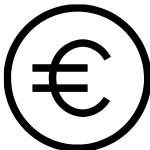Performing Arts: Music




Tuition

Duration

Admissions Deadline

Location
Profile
The content of the Performing Arts programme adequately corresponds the most recent advances in science, art and technology. Students are acquainted with the theory and practice of creative activities, improvisation, artistic project management, art marketing, and research methodology.
It must be also noted that classes are led by the most regarded virtuosos in their fields and numerous visiting professors. It truly improves the students’ familiarity with the latest and the most unique artistic developments.
During the first two years of your studies university provides a list of courses in the fields of social sciences, humanities, biomedical, physical, and technological sciences as well as Arts and foreign languages for students to get interdisciplinary knowledge and abilities. Curriculum combines elective and compulsory courses during the first two years of studies.
Specializations: Accordion, Choir conducting, Jazz, Piano, String Instruments, Vocal, Wind and Percussion Instruments.
Why Performing Arts programme?
- High employment rate during studies
- Active performing practice
- High-quality auditoriums with new instruments for rehearsals
- Academic and creative freedom
- Study exchange opportunities
- Minor studies opportunities
Admissions Requirements
A high school diploma or certificate of previous musical education, motivation interview, personal performance video and minimum 60 % CGPA.
Map
Sorry, no records were found. Please adjust your search criteria and try again.
Sorry, unable to load the Maps API.
Related Programs
Program Information
Kaunas
Lithuania
- 4 years
- Full Time
- On Campus Learning
Additional Information
- Bachelors
Considerations






